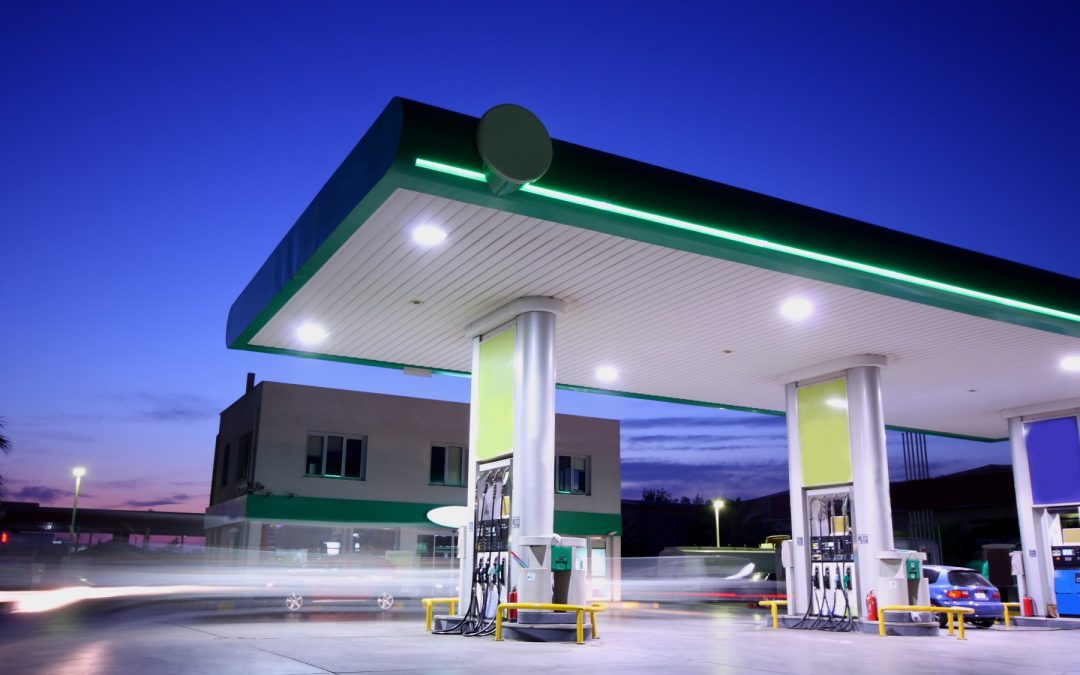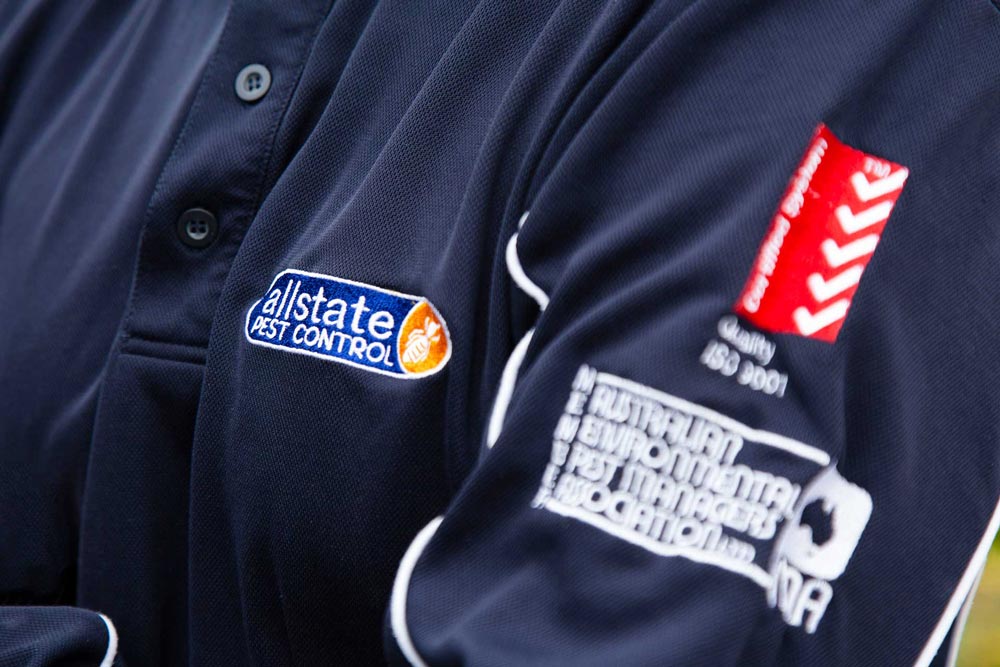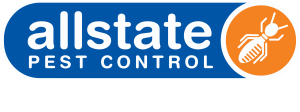
Pest Control for Facilities Managers – The Ultimate Guide
YOUR GUIDE TO PEST CONTROL FOR FACILITIES MANAGERS
When you’re a busy facilities manager, pest control can often fall to the bottom of the to-do list, and it’s not hard to see why. In between ensuring the health and safety of staff and customers, building maintenance, and keeping up-to-date with paperwork while working to budget constraints, it’s easy to forget to look for pests that are multiplying quickly while hidden away in quiet areas.
Unfortunately, pest outbreaks can cause many problems for businesses in Linden Park and beyond, from lost customers and reputation damage, to hefty fines for non-compliance.
To help keep your business and tenants’ businesses safe and protected, Allstate Pest Control has affordable long-term pest management plans and services. If you’re located nearby, check our pest control services in Brompton.
If you want to know more about effective pest management for commercial facilities, here is our guide to learning which pests to look out for, staying compliant with routine pest control services and staying on top of pest threats by using the PestSENSE Digital Pest Register.
What questions will this article answer?
Why do Facilities need routine pest control?
Pests are drawn to facilities which offer shelter, warmth, water and food. Once inside, they can proliferate quickly and cause damage, disruption and spread disease. It’s important to have an effective management plan in place to prevent them from being a nuisance.
Pest control for offices, shopping centres and warehouses
Different facilities have varying risks, business operations and requirements – all of which should be taken into account in your pest management plan.
Pests in commercial facilities
Ants, cockroaches, rodents, and spiders are some of the most common pests you’ll find creating problems around commercial facilities.
Routine pest control services
We offer 3 pest management plans which are tailored to suit the needs and requirements of your business: maintenance, active and vigilant.
Pest registers
We use and recommend the PESTsense Digital Pest Register, which enables you to keep pest information up-to-date in a hygienic, secure place. It also offers data analysis to help you quickly identify and treat potential outbreaks.
Why choose ALLSTATE?
Our experienced pest control technicians have the skills and knowledge to manage a diverse range of risks for businesses of any size and every industry. We offer cost-effective, non-disruptive, long-term and specific pest management plans. We also use treatments that are safe for people and the environment. To ensure that you receive the highest level of service, we’re food safety standard HACCP compliant, quality standard ISO 9001 certified, and members of AEMPA.
Why do facilities need routine pest control?
Once they enter a facility and are left unchecked, what began as a few pests can quickly multiply to cause a large outbreak. They can compromise the health and safety of the building, workspace, employees, clients and customers. Pests can cause structural damage, start fires, cause accidents, spread diseases and contaminate surfaces, products and food, and damage equipment and machinery.
What’s more, repairs and lost stock aren’t the only cost: they also put the reputation of you and your tenants at risk and can lead to penalties and fines from regulator.
In order to reduce these threats, it’s important to have an effective, long-term pest management strategy in place. This consists of regular inspections, on-site monitoring and preventative treatments, and a fast, coordinated response to any signs of an outbreak.
Our expert team is ready to help you now
 or
or
Pest control for offices, shopping centres and warehouses
Different types of facilities have specific risks, business operations and requirements that must be considered before putting a pest management plan in place.
Offices
Buildings with multiple levels have many hiding places for pests. The levels are typically linked with the same ventilation system, and have varying office hours, a large number of people, and some areas which have limited or no access. With these factors in mind, pest control for offices must manage risks around day-to-day operations.
Shopping centres
It’s important for retail outlets in large, often multi-level complexes to work together in following pest control guidelines and maintaining strict hygiene practices to deter pest outbreaks.
Without any procedures in place, pests can hide and breed easily in storage and waste areas, loading bays as well as areas with accessible food such as food courts. With heavy foot traffic, pests such as bed bugs can hitchhike to gain entry as well.
A pest control management plan for shopping centres must address the challenge of keeping pests away from a range of different types of retail outlets, while considering the centre operating hours.
Warehouses
Similar to shopping centres, pests can easily source food and breed in dark hiding spots, especially loading bays, storage and waste areas.
Facilities with large quantities of cardboard boxes containing cellulose can attract insects such as cockroaches, which then hitchhike between sites.
Keeping pests out of warehouses must include proper storage of food products, cardboard boxes and cellulose-containing material. It’s also important to note down where stock is manufactured, transported and stored, as this can assist with identification and treatment of pest outbreaks.
Pests in commercial facilities
Ants
Food handling facilities, which have an abundance of sugar and protein products, are very appealing to ants. A small smattering of ants can easily attract more, so an outbreak happens fast.
Ants contaminate food and spread disease, due to the fact they scavenge in waste. Their bites sting and can cause allergies. In severe infestations, they can damage buildings and electrical wiring in vehicles.
To manage ants, you’ll need to make sure that food is stored away, waste is promptly and properly disposed of, and maintain good hygiene by regularly cleaning food preparation and dining areas, and quickly wiping up spills.
Bed Bugs
By latching onto clothes and personal items, bed bugs are known to hitchhike from place to place, and transferred from homes to accommodation facilities through employees, customers or clients.
Squashed bed bugs or droppings can cause damage in hotels and motels, particularly to bedding, flooring, curtains, linen and furniture. Their bites, shedding and droppings can also trigger allergies in some people.
The key to controlling bed bus is preventing an outbreak in the first place. This is because they to deposit their eggs in hard to reach places, making it complicated to treat an established infestation.
A management plan to manage bed bugs involves regularly inspecting, cleaning and disinfecting fabric items, preventing clutter in storage areas and implementing a privacy policy for employees to report issues with bed bugs.
Cockroaches
Storage facilities and warehouses with cardboard boxes must be checked regularly for hitchhiking cockroaches. If you notice one, there are usually many more, so it’s important take any sightings seriously.
With their strong teeth, cockroaches are capable of chewing through and damaging packaging, belongings and furniture. Because they crawl through waste areas such as rubbish bins and sewers, they can easily pick up germs and infectious organisms. Any surfaces they come into contact with are at risk of becoming contaminated, and this can result in the spread of illnesses such as gastroenteritis, diarrhoea, typhoid fever, cholera, dysentery and Hepatitis A. Their droppings, saliva and shed skin can also trigger allergies in employees and customers.
Cockroach control involves maintaining high standards of hygiene, keeping food stored away properly, cleaning food preparation areas and keeping floors clean.
Rodents
Rats and mice can squeeze through very small entry points to gain access into facilities. With their instinct for gnawing, they can cause significant structural damage by chewing through walls, timber, plaster and electrical wiring.
Through unhygienic scavenging behaviour, rats and mice carry harmful germs in both their droppings and coats, which contaminate food, stock, surfaces and equipment that they come into contact with.
To manage a rodent issue quickly, facility managers should regularly inspect buildings for potential signs of rodent activity by looking for their distinctive droppings, and checking food storage areas.
Spiders
If you’re noticing messy cobwebs in dark, quiet areas of your facility, chances are you have spiders. They favour living in storage areas, basements and control rooms, and happily live in tiny gaps and cracks.
While many spiders are non-venomous, having them around can provoke fear in staff and customers alike.
To ensure that your facility remains spider-free, you should prevente clutter, conduct regular and thorough on-site inspections in all areas, check all stock and supplies carefully, and promptly treat all affected areas and inventory.
Get advice on routine pest management today
 or
or
Routine pest control services
As a facilities manager, responsibility for commercial pest maintenance usually lies with you, and that involves keeping away a range of pests. With many other duties to tend to, regular pest control can often fall to the bottom of the to-do list. That’s why Allstate offers tailored and affordable pest management programs to help you to keep your facility clean, protected and compliant.
Pest control services to suit your business
When you engage Allstate Pest Control, a technician will come to your facility to carry out an initial assessment, then prepare a pest management proposal with specific recommendations. We carry out pest inspections and maintenance services through 3 different programs:
- Maintenance: this program involves quarterly visits to businesses in low-risk industries that have experienced a previous outbreak, or are near a restaurant, body of water or a place deemed to have a high risk of attracting pests
- Active: we conduct bi-monthly visits for facilities that have a higher risk of attracting pests
- Vigilant: we provide monthly assessments for food-related businesses or businesses requiring regular pest control meet compliance standards
As part of your pest control plan, we offer regular follow up services which are automatically booked ahead so that you won’t need to worry about scheduling visits yourself. Our technicians will always keep you informed.
Online pest management services to keep you connected 24/7
Besides our preventative pest control measures and a regular pest services, all of our pest management programs include access to our PESTsense Digital Pest Register [link to PESTsense page], enabling you to immediately report any new issues or emergencies to your pest control technician in between visits.
Pest registers
Pest registers are integral to best practice pest control. However, traditional paper registers are unhygienic, get lost easily, and don’t provide nearly the same level of insight and resources as a digital register. At the same time, online pest registers make it complicated for employees to report pest sightings and are cost-prohibitive to smaller businesses.
Instead, we created PESTsense – a digital pest register accessible to businesses of all sizes and accessed by a QR code. This has made it easy and efficient to report sightings, keep pest documentation up to date and in one place, and track activity and trends.
Stay compliant with third party audits
Our aim is to simplify and streamline the pest compliance process, saving you time and paperwork when audits are due, while giving you peace of mind that your facility is still compliant 24/7.
PESTsense ensures that your information is up-to-date and that licenscs and Safety Data Sheets remain current. Service reports with all the required information are automatically uploaded and you have easy access to service history and risk records.
Identify potential pest outbreaks faster
By reporting pest sightings and using PestSENSE electronic pest monitoring stations, you and your technician can quickly identify any trends and spikes in pest activity. This allows you to be proactive and respond more quickly to new outbreaks.
Why choose Allstate?
At Allstate, we understand that it’s hard for facilities managers to keep your workplace safe and pest-free within a limited budget. It can be overwhelming to carry the responsibility of preventing and treating pest outbreaks, while staying compliant with all the paperwork.
Fortunately, our team is experienced at managing a diverse range of risks in every industry. Since 1986, Allstate has provided customised pest management solutions to Adelaide commercial facilities, large and small. This includes cost-effective, non-disruptive, modern and targeted treatments which are safe for people and the environment.
To ensure that you receive the highest level of service, we’re food safety standard HACCP compliant, quality standard ISO 9001 certified, and members of AEMPA.
For a customised solution to pest management at your workplace, chat with one of our consultants today.




